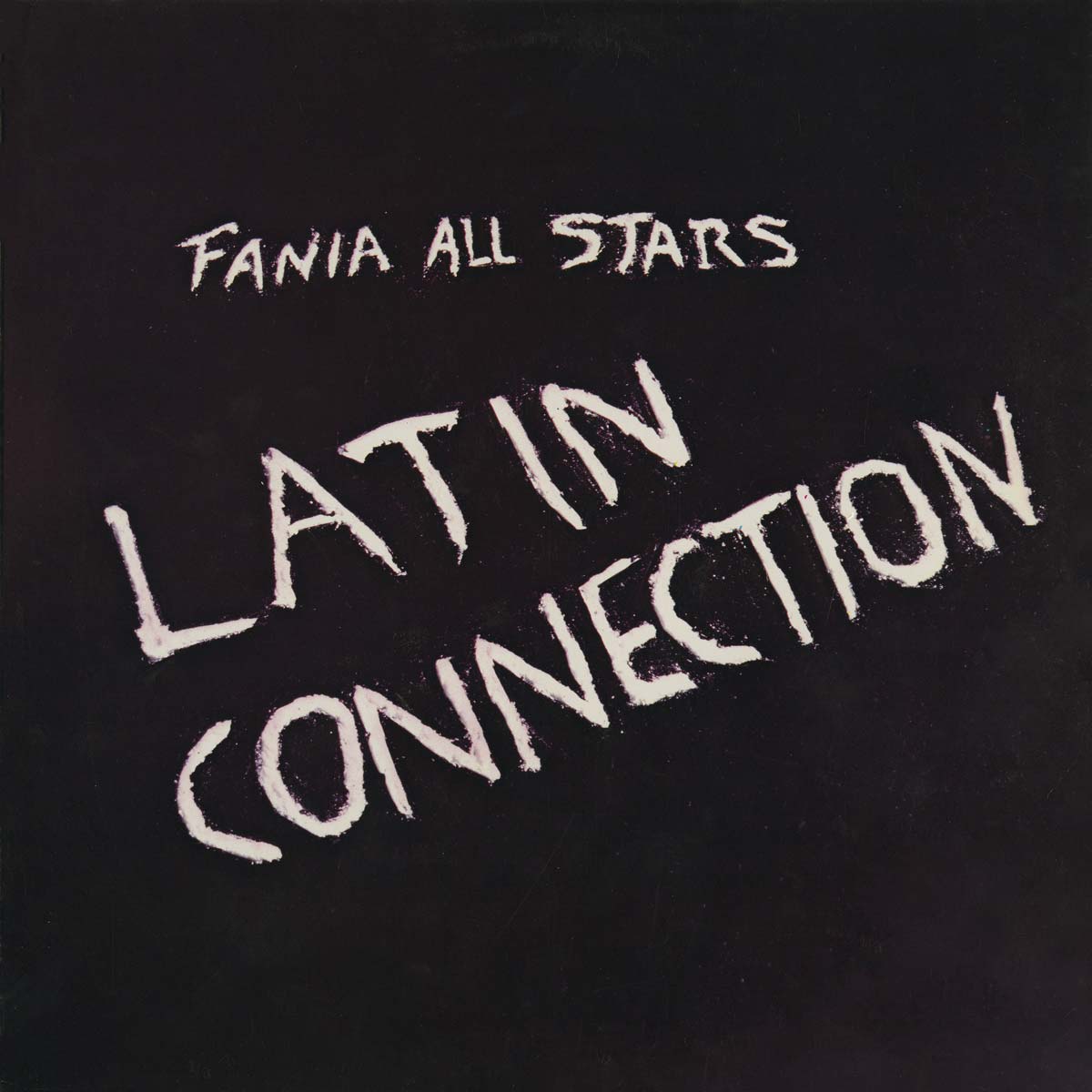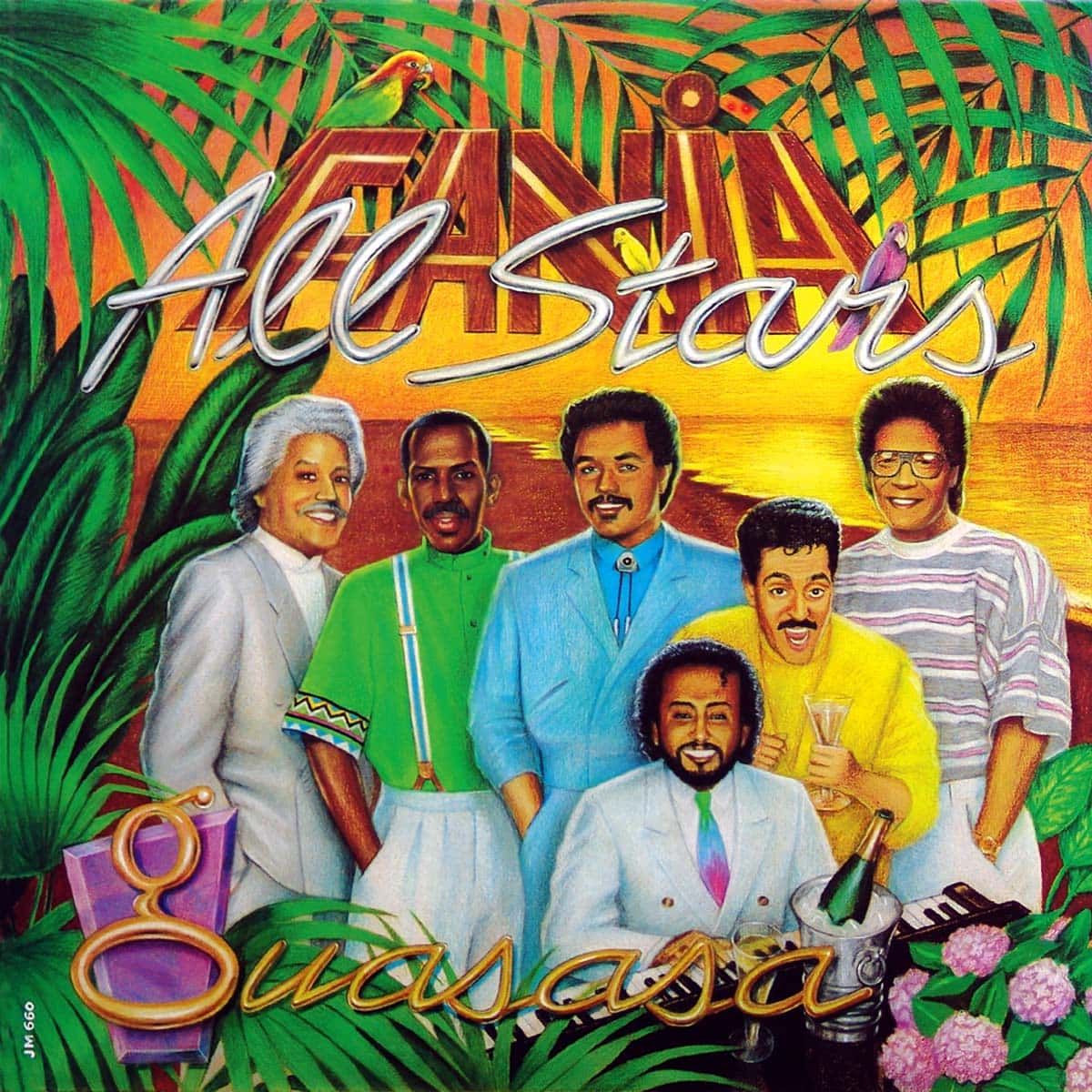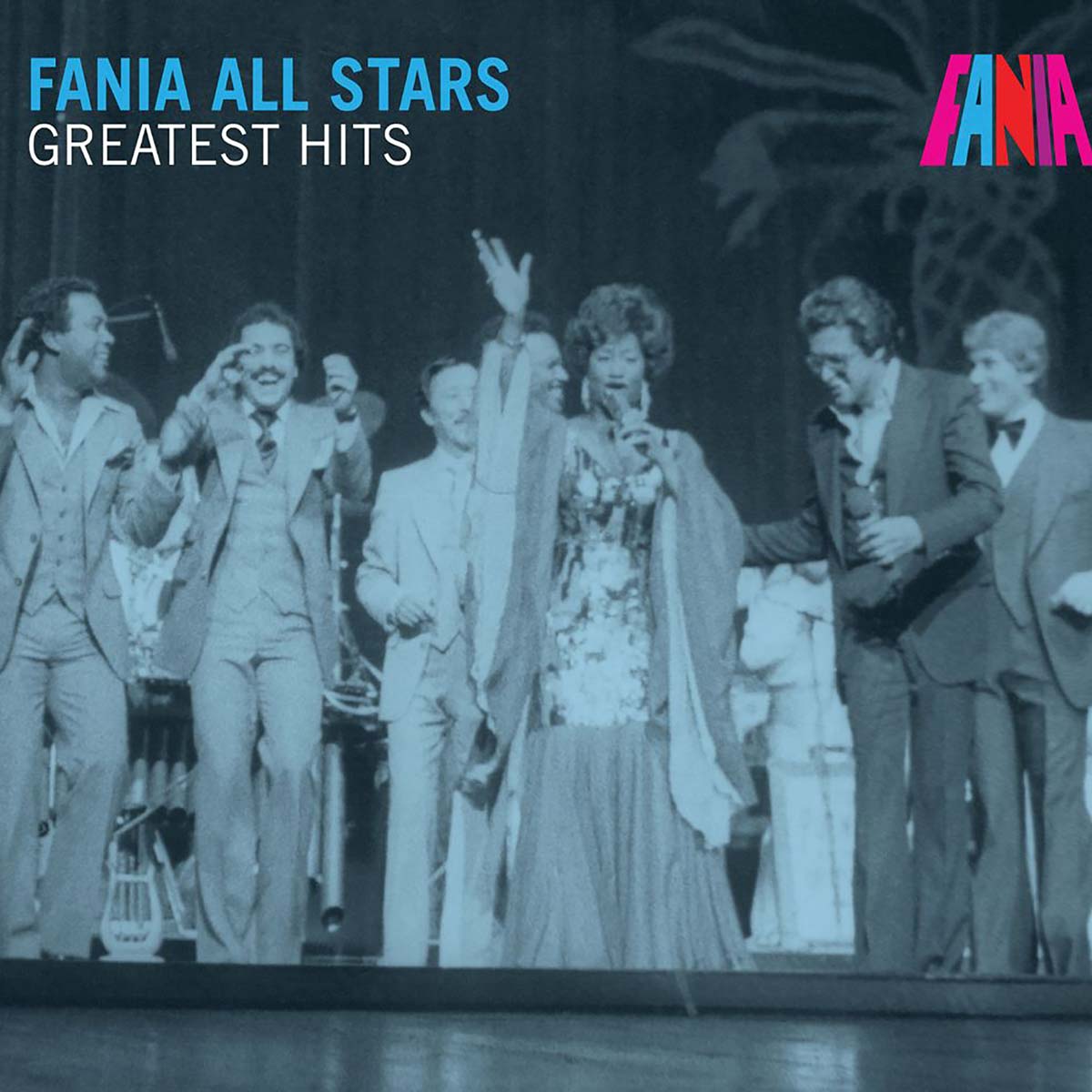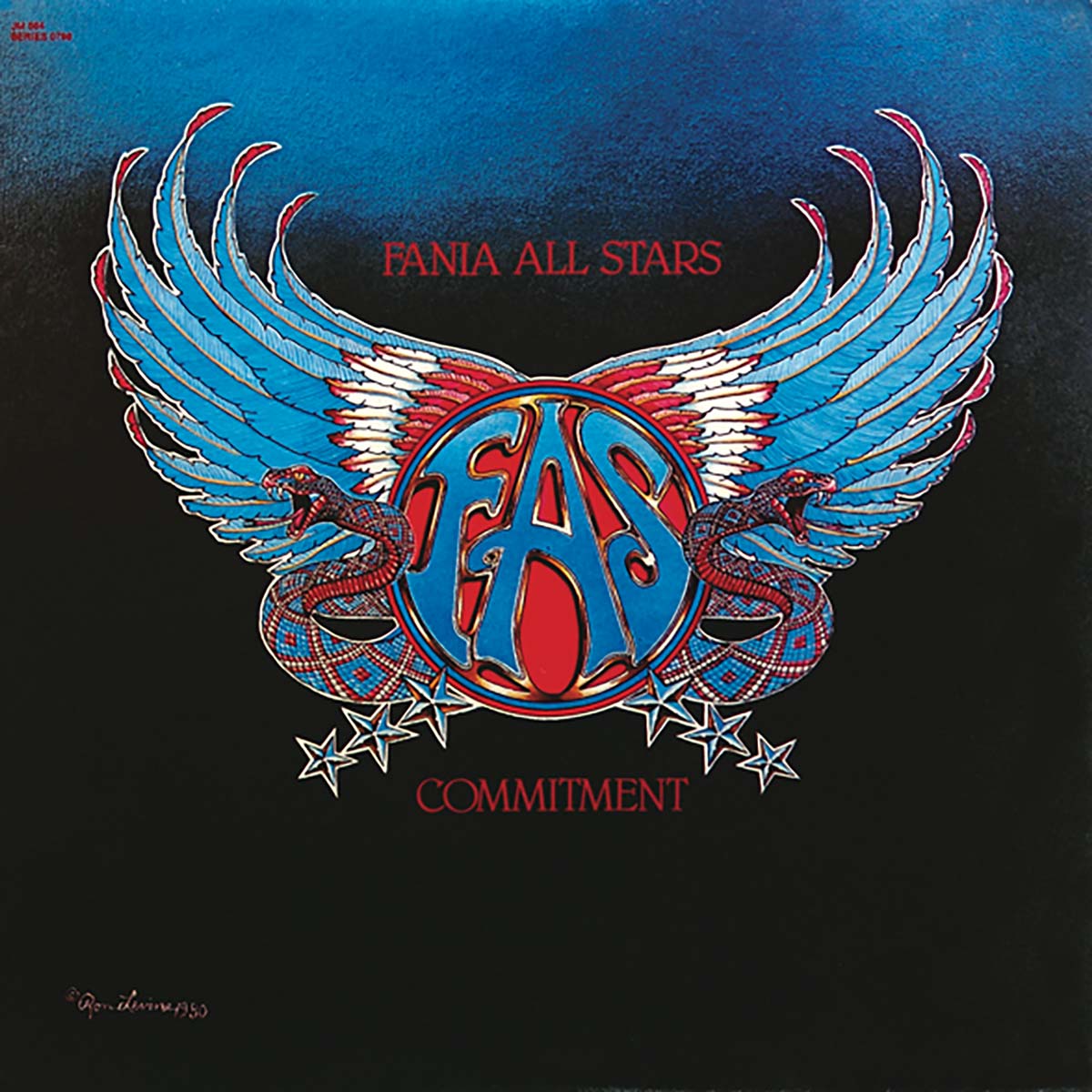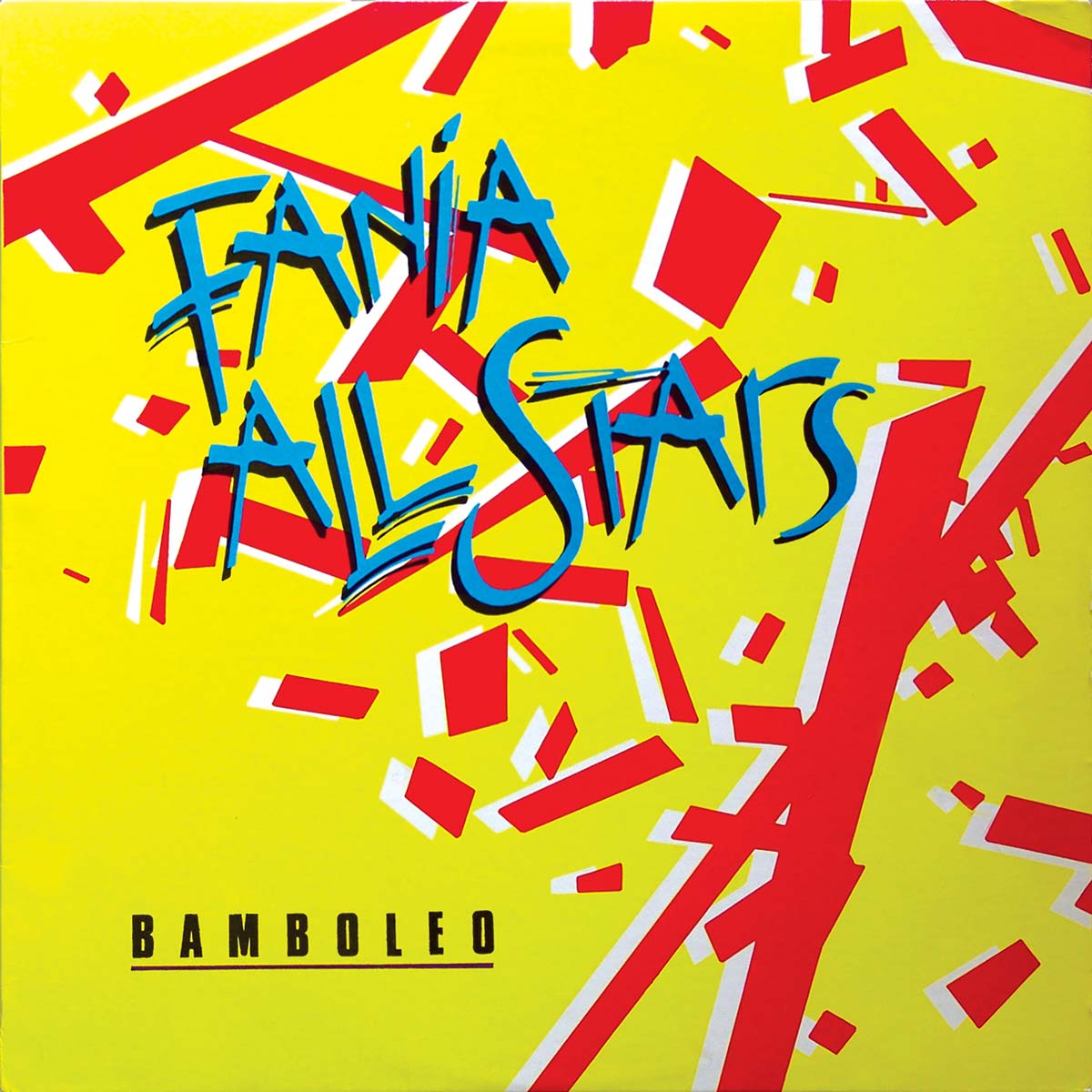
In 1988, the year in which Héctor Lavoe tried to kill himself by jumping from the nineth floor of the Hotel Regency in Condado, Puerto Rico, the Fania All Stars faced a wave of sensual and cosmetic salsa with the production “Bamboleo”.
In plain ‘boom’ of erotic salsa, representatives of the ‘old school’ like Héctor Lavoe, Cheo Feliciano and Ismael Miranda weren’t drawing the masses anymore as they once did in their glory days with Fania. The night before Lavoe’s suicide attempt, the poor attendance at the Coliseo Rubén Rodríguez in Bayamón (Puerto Rico) led to the cancellation of a concert in which Lavoe was to share the stage with Ray Barretto, Perico Ortiz and el Tumbao de Johnny Pacheco with El Conde.
Since the middle of the 1980s, the new salsa idols were singers like Eddie Santiago and Frankie Ruiz, catapulted to fame by the record label TH-Rodven, with it bases of operation in Venezuela, Puerto Rico and Miami. Nevertheless, in spite of its sporadic launches, the key to musical preference continued in the hands of Fania. TH-Rodven and its recording director Julio César Delgado, invoiced millions of dollars in sales of their records, but their Achilles’ heel was the repetition of arrangements, musicians and consequently, of the same sound that in a couple of years would end up saturating the genre, giving way, in the beginning of the ‘90s, to the New York style created by Sergio George based on a combination of the Afro-Caribbean clave and hip-hop.
Although “Bamboleo” was one of the most discreet records made by the Fania All Stars, in 1988 and faced with the musical monotony that TH-Rodven transmitted to the world, it turned out to be a refreshing oasis in the midst of a salsa desert. From an ambiguous concept, in four of the six tracks that make up the song list of “Bamboleo”, Fania’s president Jerry Masucci paid tribute to the Gipsy Kings.
This band, from the south of France, was responsible for globally revitalizing the rumba flamenca. But the concept was not limited to the salsa adaptations of the Gipsy Kings’ hits, rather with the songs “Smooth Operator” and “Don’t Worry About A Thing” they recalled the four pop rock albums (Delicate & Jumpy, Rhythm Machine, Spanish Fever and Crossover) that the Fania All Stars recorded with Columbia Records during the 1970s, in a failed and ineffective initiative to enter the Anglo-Saxon market of the music industry. Here, their version of the hit “Smooth Operator” by the singer Sade, is really just a filler, so much so that in the “Bamboleo” credits, not even the names of the female chorus singers or those who played tenor saxophone and electric guitar are mentioned. The accompaniment of “Don’t You Worry About A Thing”, that appears as part of a tribute to Santana, changes to a charango, another detail that suggests that Masucci did not know exactly what to do on “Bamboleo”.
Hence, the most outstanding song of this recording is the interpretation of “Bamboleo” performed by Celia Cruz, which is based on some of the lyrics from the Venezuelan classic Caballo Viejo by Simón Díaz. The solo by guitarist Francisco Navarro is the perfect complement and his virtuosity can also be appreciated in “Siento”, the last studio recording made by a declining Héctor Lavoe. In “Quiero Saber” sung by Willie Colón and in “Djobi, Djoba”, a track performed by El Conde that moves between the charm of the flamenco and the cadence of the Brazilian samba, jazzed up at the end with a solo by trumpeter Piro Rodríguez.
Even though in 1988 the solo singers demanded attention in the salsa world, with “Bamboleo” the Fania All Stars were consistent with their greatest estimation: musicians are also important and without their contribution, salsa would lose its flavor. In spite of the romantic nuances of the Gipsy Kings’ tracks, Fania’s rumba flamenca was flavored with the seasoned expertise of Pacheco, Papo Lucca, Ray Barretto, Roberto Roena, Nicky Marreto, Bobby Valentín and the rest of the Fania All Stars who took the salsa flag on a trip around the world.
Credits: Johnny Pacheco – Flute, Percussion, Güiro Ray Barretto – Conga Bobby Valentín – Bass Papo Lucca – Piano Roberto Roena – Bongo Nicky Marrero – Timbales Jimmy Delgado – Timbales Héctor “Bomberito” Zarzuela – Trumpet Tony Barrero – Trumpet Pedro Boulong – Trumpet Leopoldo Pineda – Trombone Reinaldo Jorge – Trombone Lewis Kahn – Trombone Eddie Drennon – String Section Chorus – Johnny Pacheco, Adalberto Santiago, Yayo El Indio, Roberto Rodríguez, Felo Barrios Special Guests: Francisco Navarro – Guitar David Rodríguez – Trumpet Producer – Jerry Masucci Recording Director – Johnny Pacheco Engineer – Irv Greenbaum Arrangements – Louie Ramírez (“Bamboleo”, Smooth Operador”), Isidro Infante (“Siento”, “Don’t You Worry About A Thing”), Marty Sheller (“Quiero Saber”), José Febles (“Djobi, Djoba)
Written by Jaime Torres Torres


